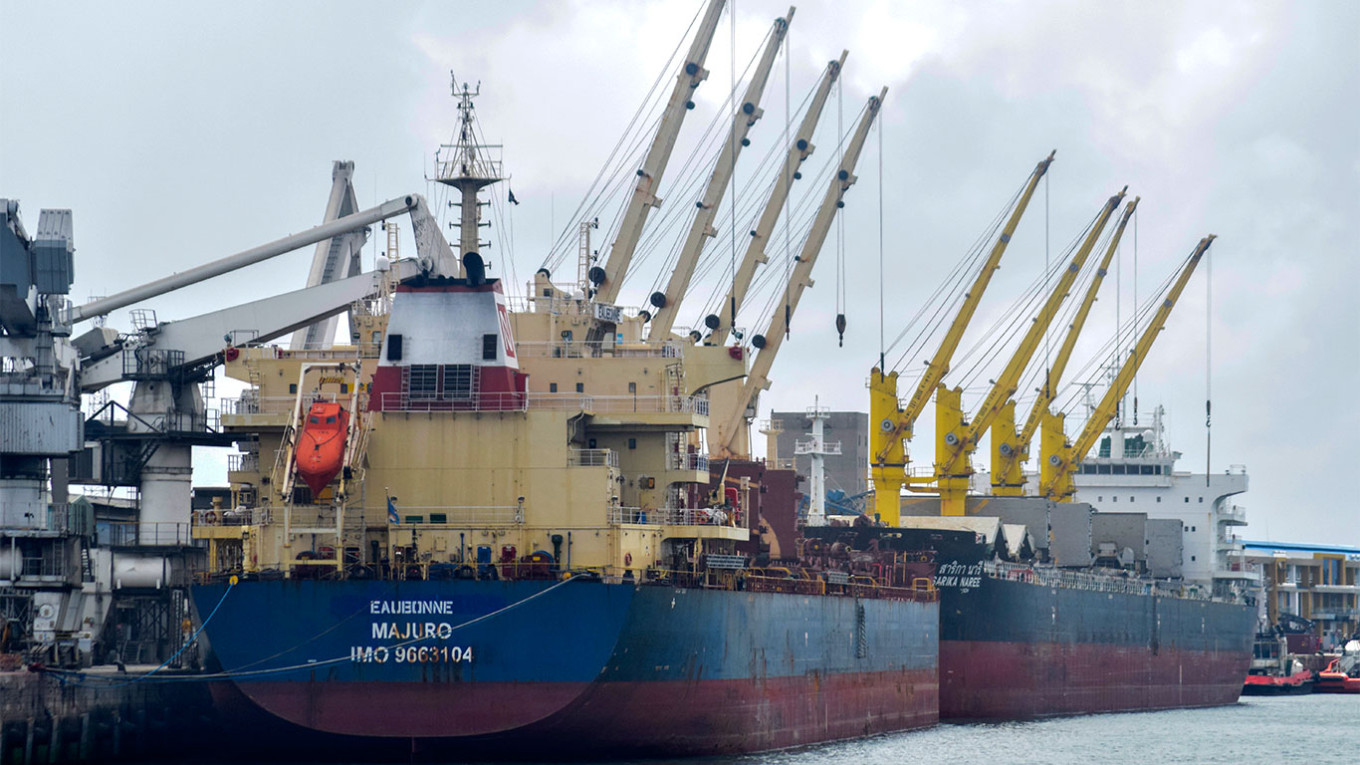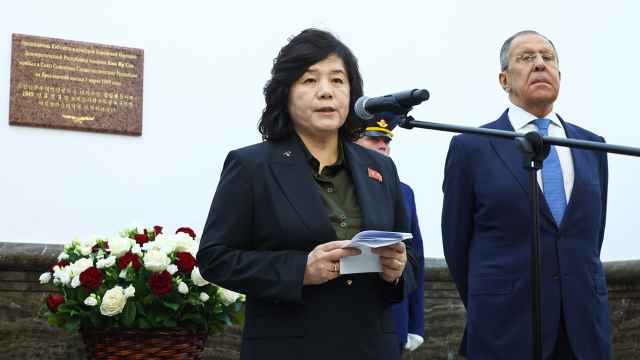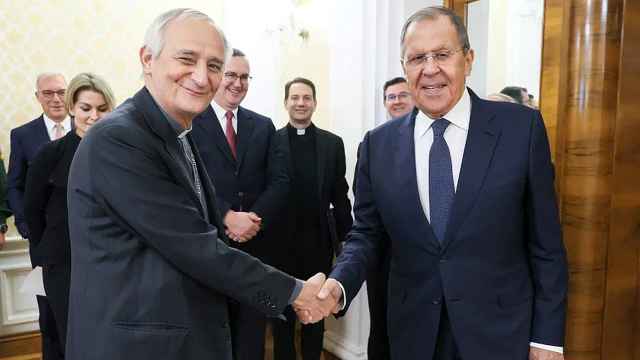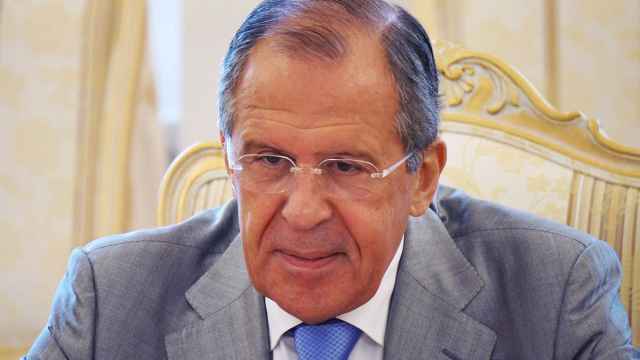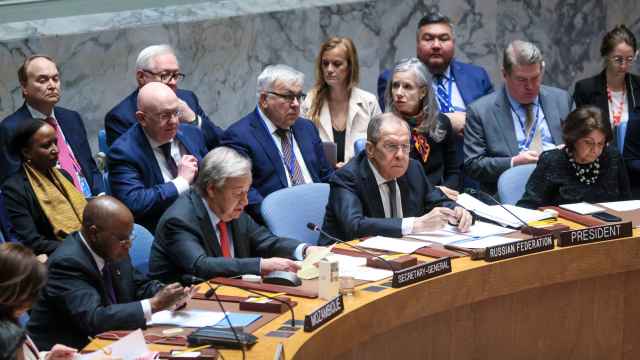Russia and the United Nations will hold talks in Geneva on Monday on renewing the Ukraine grain export deal, with the UN saying the fate of millions rested on its extension.
Russia's full-scale invasion of Ukraine in February last year saw Ukraine's Black Sea ports blocked by warships until a deal signed in July allowed for the safe passage of exports of critical grain supplies.
More than 23.7 million tons have been exported under the UN and Turkey-brokered Black Sea Grain Initiative, according to the United Nations.
The BSGI deal, which has helped ease the global food crisis caused by the invasion, will automatically renew on March 18 unless Moscow or Kyiv object.
But Russian Foreign Minister Sergei Lavrov said Thursday that extending the deal was becoming "complicated," as he claimed a parallel agreement on Russian exports was not being respected.
While the BSGI concerns the export of Ukrainian grain, the second agreement, between Moscow and the UN, aimed to facilitate the export of Russian food and fertilizers, which are exempt from Western sanctions imposed on Moscow.
"If the package is half fulfilled, then the issue of extension becomes quite complicated," Lavrov said during a press conference in Moscow.
"Our Western colleagues, the United States and the European Union, pathetically declare... that no sanctions apply to food and fertilizers, but this position is dishonest," Lavrov said.
"In fact the sanctions prohibit Russian ships carrying grain and fertilizers from entering the corresponding ports, sanctions prohibit foreign ships from entering Russian ports to pick up this cargo," he said.
'Too much at stake'
Russia's Foreign Ministry spokeswoman Maria Zakharova said Thursday that a Russian "interdepartmental delegation" will head to Geneva for the talks.
She said the discussions would include UN humanitarian chief Martin Griffiths, and Rebeca Grynspan, head of the UN's trade and development agency UNCTAD.
"The deal will be discussed," the spokeswoman told reporters.
The UN confirmed talks were scheduled for Monday.
UNCTAD said the deal had allowed for greater consistency and predictability, helping to mitigate price shocks in the international market.
"The BSGI is one example of concrete action to navigate some of the worst cost-of-living crises the world has faced in a generation," it said Thursday, in a report on the deal's impact.
"The BSGI has yielded results that need to be scaled up. There is too much at stake and the situation is dire. Without the initiative, the lives of millions more are placed in a precarious position.
"The renewal of the BSGI provides hope that the world's most vulnerable can make it through the crises. And every effort is needed to keep this hope alive."
Corn and wheat
On Tuesday, UN chief Antonio Guterres said it was crucial to extend the deal, during a visit to Kyiv. Grynspan was in the Ukrainian capital on Wednesday for talks on the BSGI.
Guterres' deputy spokesman Farhan Haq told reporters in New York that Grynspan had been "pushing very hard" to make sure that obstructions to Russian fertilizer exports are cleared.
Ukraine is one of the world's top grain producers.
The BSGI accounted for 60% of total Ukrainian export volumes of corn, wheat and barley during the first four months of its operation, said UNCTAD.
Nearly half of the exports are corn, and more than a quarter wheat.
Around 45% of the exports went to developed countries. The biggest recipient was China, followed by Spain, Turkey, Italy and the Netherlands.
A Message from The Moscow Times:
Dear readers,
We are facing unprecedented challenges. Russia's Prosecutor General's Office has designated The Moscow Times as an "undesirable" organization, criminalizing our work and putting our staff at risk of prosecution. This follows our earlier unjust labeling as a "foreign agent."
These actions are direct attempts to silence independent journalism in Russia. The authorities claim our work "discredits the decisions of the Russian leadership." We see things differently: we strive to provide accurate, unbiased reporting on Russia.
We, the journalists of The Moscow Times, refuse to be silenced. But to continue our work, we need your help.
Your support, no matter how small, makes a world of difference. If you can, please support us monthly starting from just $2. It's quick to set up, and every contribution makes a significant impact.
By supporting The Moscow Times, you're defending open, independent journalism in the face of repression. Thank you for standing with us.
Remind me later.


